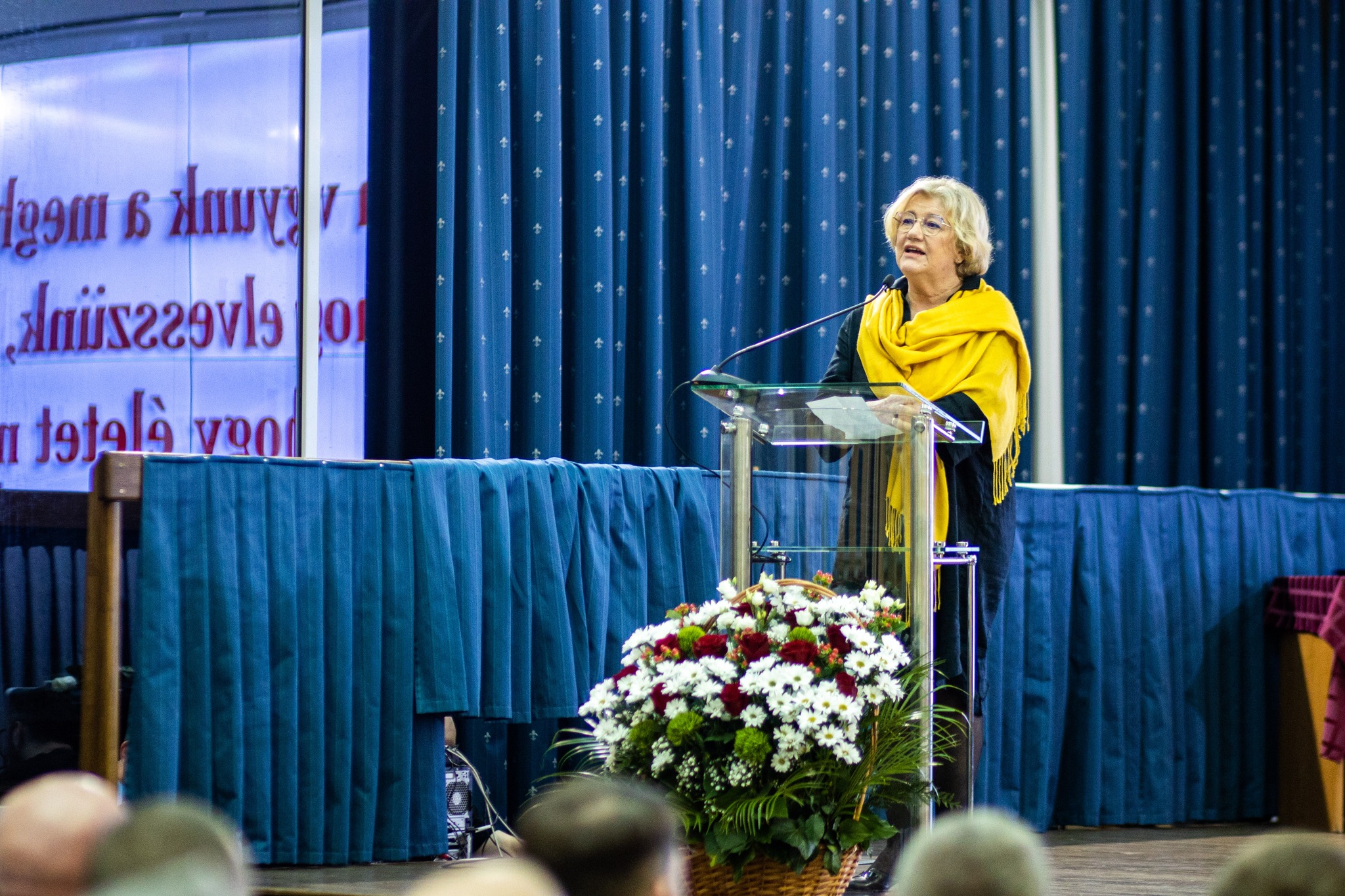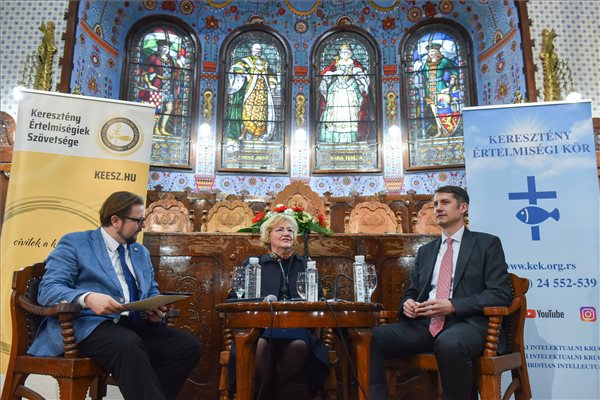
In her speech, she emphasized Hungary's commitment to supporting Hungarians living outside Hungary's borders.Continue reading

Chief Advisor to the Prime Minister, Katalin Szili, praised the exemplary functioning of the autonomous province of Vojvodina, Serbia, during her speech in Subotica (Szabadka).
She highlighted that the Hungarians in Vojvodina have the opportunity to participate in a fully realized cultural autonomy. This autonomy allows the Hungarian National Council of Vojvodina to independently decide on matters concerning culture, education, media, and financing.
At the public forum of the Association of Christian Intellectuals titled “A cooperative nation – the situation and future of Hungarians beyond the borders,” Katalin Szili also emphasized the role of Hungarians in Vojvodina in driving Serbia’s integration into the EU.
She expressed hope that Serbia’s eventual full membership in the EU would enable Hungary to advocate for the consideration of nations prioritizing security over global trends in European decision-making bodies.
Ms. Szili underlined the importance of the reconciliation process between Serbia and Hungary over the past decade, crediting the Alliance of Vojvodina Hungarians for its role in this process. Reflecting on the past 14 years, she highlighted the remarkable cooperation achieved, especially since the reunification of the Hungarian nation from 2010 onwards, despite the historical challenges posed by the Treaty of Trianon in 1920 (The peace treaty signed in the Petit Trianon Palace led to the break-up of the Austro-Hungarian Empire, as a result of which Hungary lost roughly two-thirds of its territory and one-third of its population).
With Serbian municipal elections scheduled for June 2, and European Parliament elections on June 9, the politician stressed the significance of these elections in affirming the importance of peace and security.
Szili emphasized the role of conservative forces in prioritizing national interests and faith, advocating for the preservation of a Europe of nations rather than a United States of Europe.
Bálint Pásztor, President of the Alliance of Vojvodina Hungarians, echoed these sentiments, emphasizing the resilience of the Hungarian community in Vojvodina despite challenges such as a declining population. He cited the success of the Hungarian government’s economic development program and the increasing demand for secondary school and university places as indicators of the community’s determination to prosper in their homeland.
Mr. Pásztor concluded by acknowledging the support of the Hungarian government while emphasizing the need for continued efforts on the home front.
Via MTI; Featured Image: MTI / Molnár Edvárd